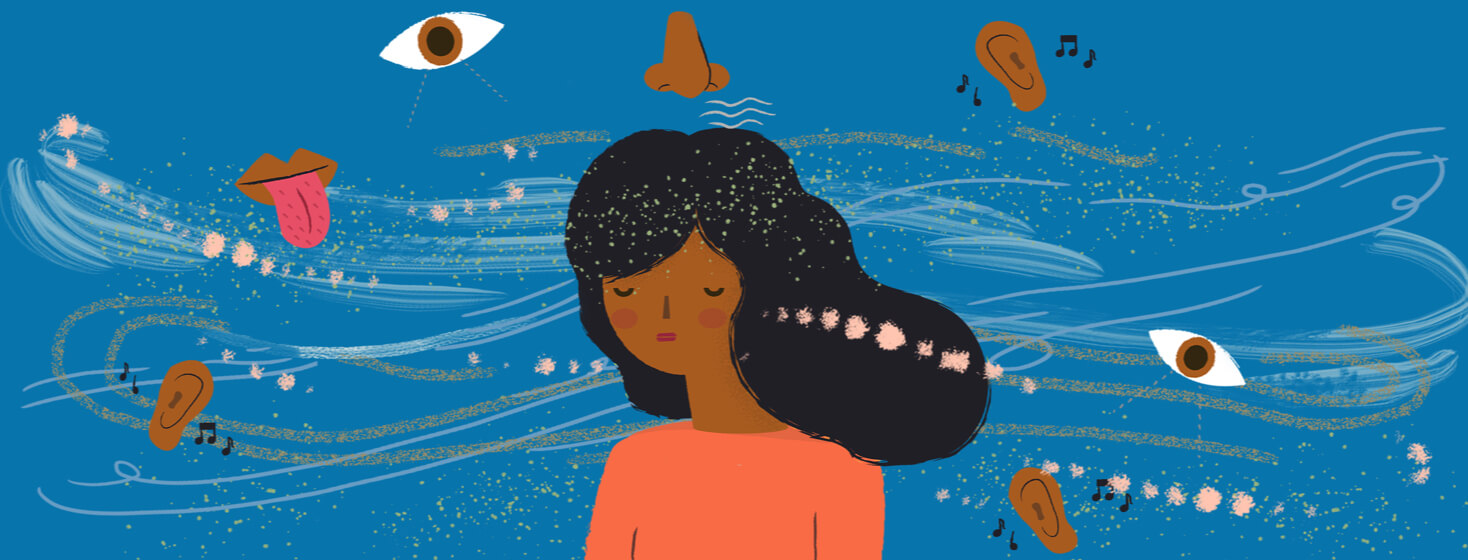A Lesser Known Symptom of Sensory Overload
My Big Mac Meal order flashes on the screen while a disembodied voice booms “$8.36 at the first window.”
“Thank you,” I say cheerfully, and pull forward in the drive-thru, my mouth watering in anticipation. It has been a busy, productive day, and this fast-food run is how I reward myself. But suddenly, the world darkens. I feel empty, cold, despairing, and achingly lonely. A lump forms in the back of my throat. Tears well up and blur my vision as I edge along in line, drawing closer to the pay window. I choke back a low wail and force myself to stop the meltdown, managing a smile just as I pull up to the window.
The effect of sensory overload
In the space of a few seconds, my light mood has tumbled into unbearable emotional pain. Soon afterward, it dawns on me that this is a part of sensory overload. Yes, sensory overload. Not pseudobulbar affect, not depression or bipolar disorder. I am as surprised at this prospect as some of you might be. What happened immediately before this episode convinces me it was sensory overload.
The build up
For days I’d been in the zone, writing and moderating with specific goals in mind. It was Thanksgiving week, during which friends, loved ones, and colleagues reached out. The last week of any given month is my crunch time - when I hunker down and tell everybody I have to make myself scarce so I can catch up on writing and moderating. But this week was different. I felt invincible. I quickly, gladly acknowledged each interruption, bouncing from doing a favor for a colleague to writing a new paragraph for an article; from answering a text from my sister to reading new emails that required action; from finishing an hour of moderation to taking a call from a friend while laughing at a naughty text from a lover.
The crash
I multi-tasked better than I did as an admin assistant in my pre-MS life, as though the brisk winds of November had blown fairy dust on me. In fact, I reveled in the attention. Sitting in line at McDonald’s and quietly awaiting my reward created a space for the first time in hours, if not days. Rather than relaxing into the silence, I felt instead like a toddler abandoned in a crowd.
Past sensory overload experiences
In years past, I experienced a more recognizable form of sensory overload. In my April 28th, 2019 article titled “Sensory Overload in a Noisy, Apathetic World,” I describe a trip to the gym that turns a pleasant exercise venue into a hostile, aggressive battleground. One day the speakers were suddenly turned up full blast. I had been in the zone, peddling away on my seated elliptical, happy as a kid on a playground. The booming speakers filled every space in every molecule in my brain. Then came the sensation of being infected by a tentacled earworm that I couldn’t shake loose. After complaining at the desk and demanding the volume be turned down, I was the one that was turned down. They refused. I fled the facility only to return the next day to confront the same problem. Again I fled, never to return.
Coping with complex emotions
If I compare this experience with the recent one, where the interruptions to my day were welcome, I can better understand why I didn’t experience a meltdown. Allowing interruptions kept me in control, unlike the sudden assault on my ears in the gym. And if I were to be completely honest, the outreach consisted of making use of my connections and skills which appealed directly to my value, my ego. On top of that, my birthday fell on Thanksgiving this year, so there were celebrations planned and birthday cards were delivered every day that week. I felt alive in the world, loved, valued, useful.
Those moments of anguish and emptiness have surfaced before, except other people were present to those. I verbalized my disappointment in self-pitying ways for which I was instantly admonished. I feel grateful to have been alone during this meltdown. The moment soon vanished and I was back on track. What did linger, though, was what my anguish signaled: a gnawing loneliness that will likely never be soothed.
The role of MS
While I am not at all certain that MS is directly responsible for these events of sensory overload, this phenomenon has definitely worsened since my MS diagnosis. It occurred to me that MS causes our nerves to become hyper-excitable, so my extreme reaction to sudden noise makes some kind of sense. I have not mentioned it to my medical team. I probably never will. I already know there are workarounds and tools to manage it, such as earplugs and noise-canceling headphones. The older event happened in 2019, so it doesn't happen very often and is impossible to predict or prepare for. So I have learned to roll with it.

Join the conversation